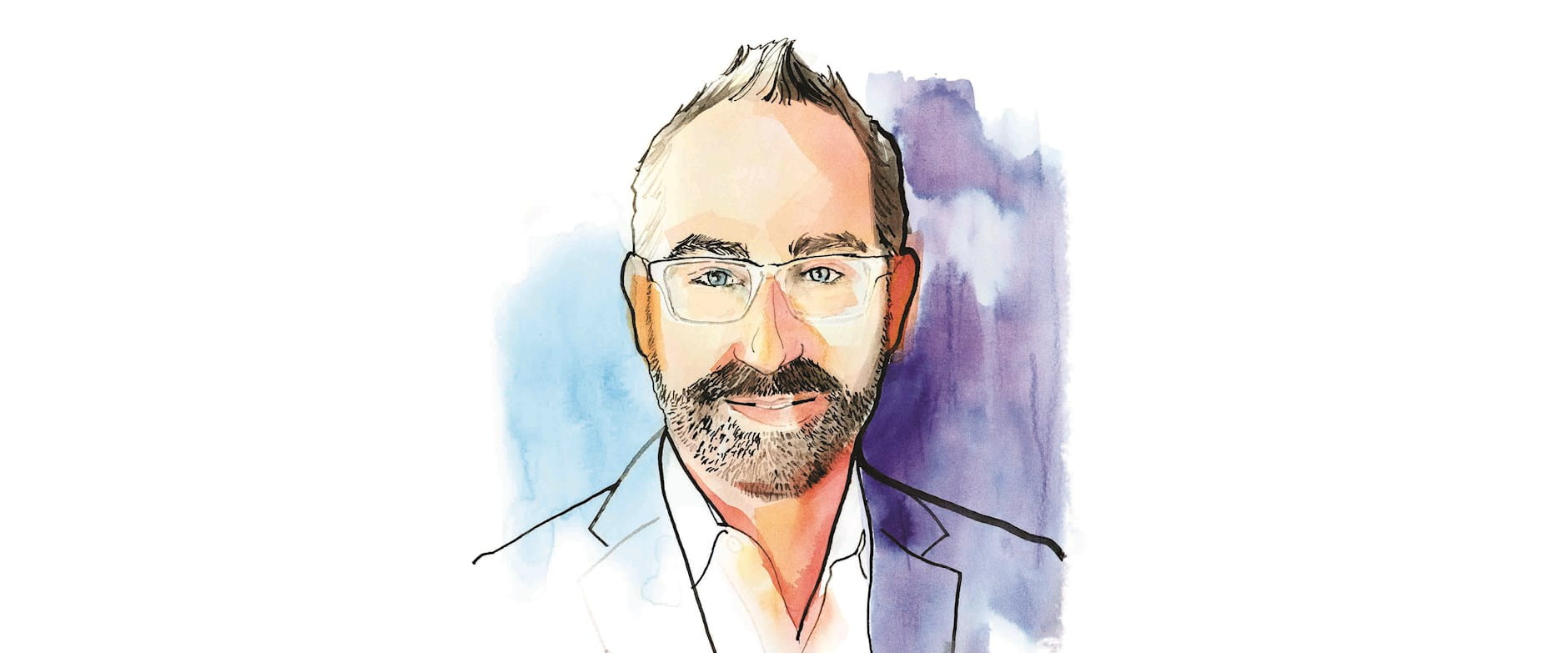Roughly 25 years since leaving Booth, Andy Schmeltz, ’97, hasn’t veered from his personal mission: improving lives by doing work he truly believes in.
The bulk of Schmeltz’s career has been at Pfizer. He spent four years as global president and general manager of Pfizer Oncology, working his way up from a marketing team leader in 2003. Less than a year ago, the executive became Pfizer’s senior vice president of commercial strategy and innovation, focused on the company’s pipeline and on making continued advancements across key therapeutic areas such as oncology, rare diseases, and vaccines. He’s driven to transform scientific discoveries into breakthrough medicines that improve and extend quality of life for people.
What is the primary function of your new role?
My team is responsible for setting and delivering mid- to long-term strategies for the therapeutic categories that Pfizer operates in, in partnership with research and development. We also create the investment cases for advancing our pipeline and assessing business development opportunities. The role is really about setting the stage for a very bright future for Pfizer and society at large.
Are there Booth courses that you continue to learn from to this day?
In the late Marvin Zonis’s leadership course, I learned that charismatic leaders should have a ruthless sense of self-awareness and reflect on how others perceive them. To thrive at a company and climb the ladder, it’s important to have that recognition and awareness in building your own personal “brand equity”—because it’s not just how the people who directly work with you perceive you, it’s the equity that you generate in the company, that people who have never worked with you directly think highly of you too.
The investment management course I took at Booth is also front and center in my current role. It ties into how we try to optimize the composition of our pipeline portfolio, internally and externally, as well as how much we allocate. It’s all about portfolio theory, risk, and investment horizons.
How has your connection to Booth evolved after graduation?
I’ve always been a champion of recruiting Booth talent into the biopharma industry. I started out of Booth working in Abbott’s management development program, and that really opened my eyes to the value in rotational management programs. In 2009, I started the marketing rotational program at Pfizer, and we’ve been sourcing talented grads out of Booth and other top MBA programs ever since. Twelve years later, many of them are moving up the ranks.
How has Pfizer’s breakthrough COVID-19 vaccine changed the company?
We learned that we could mobilize a large, 80,000-person company and move quickly when the world was depending on it. This light-speed mindset of crushing bureaucracy now permeates the company. Striving for breakthroughs that change patients’ lives is front and center in everything we do. We understand that both today and in the future, society expects this and will only value innovations that address unmet needs and transform standards of care as well.
In two decades at the same company, what have you learned about switching roles and navigating the corporate world?
There are a couple of principles that I take with me in switching roles. To be successful, especially in corporate America, means acknowledging that hard skills—including technical expertise, analytic ability, strategic thinking—are just the entry tickets. What differentiates somebody are the soft skills: knowing how to communicate, having emotional intelligence, being able to assess situations and navigate effectively, being a leader and having people follow you. When I coach people, that’s always the advice I give: what sets you apart are the soft skills.
What leadership lessons are you practicing in your own work?
One thing I’ve learned is just how critical it is to be authentic as a leader. You can’t be very successful if you are just reading talking points. People see right through the corporate speak, particularly coming out of COVID-19. You have to work on being a little bit more vulnerable and sharing a bit more. For me, that means sharing more about my personal life and my family, talking about those soft skills, and getting feedback from others.


